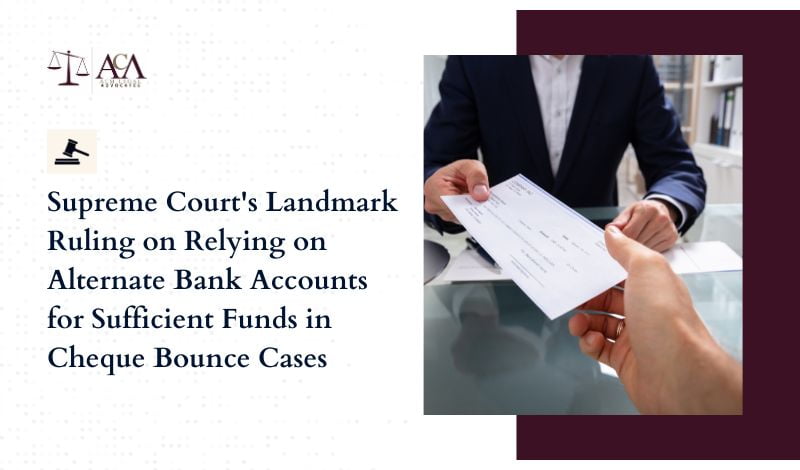Table of Contents
ToggleUnderstanding the Impact of Supreme Court’s Ruling on Alternate Bank Accounts in Cheque Bounce Cases
The Supreme Court of India, in a pivotal decision, has clarified that having sufficient funds in alternate bank accounts cannot be used as a defence under Section 138 of the Negotiable Instruments Act (NI Act). This ruling emphasizes that the accused in cheque bounce cases cannot depend on the status of any other bank accounts, as the dishonour of a cheque is specifically linked to the account from which it was issued.
Case Background
In the case of Harpal Singh vs. State of Haryana and Another, the Supreme Court dismissed a Special Leave Petition (SLP) filed by the petitioner, Harpal Singh. Singh argued that he should not be convicted under the NI Act as his bank account was frozen on March 10, 2015. He issued a total of 10 cheques amounting to Rs. 80 Lakhs, but the balance in the concerned account was only Rs. 18,52,033, leading to the bouncing of the cheque. He contended that he had adequate funds in other bank accounts, which should preclude his conviction under Section 138 of the NI Act, 1881. This scenario underscores the complexity of cheque bounce cases.
The respondent, Dharam Singh, claimed he invested in the accused’s company based on assurances of a financial return, which was to be settled through cheques. However, these cheques bounced due to insufficient funds in the account, constituting an offence under Section 138 of the NI Act.
Supreme Court's Decision
The Supreme Court held that presenting the availability of adequate funds in bank accounts other than the one linked to the dishonoured cheque is an irrelevant and immaterial defence. The Court dismissed the petitioner’s argument, stating that the accused was responsible for ensuring sufficient funds in the account at the time of issuing the cheque.
Conclusion
This landmark decision by the Supreme Court underscores the importance of adhering strictly to the provisions of the NI Act in cases of cheque bounce. The ruling makes it clear that the accused cannot escape liability by citing sufficient funds in accounts other than the one from which the cheque was issued. The Court’s judgment reinforces the principle that the accused must ensure adequate funds are available in the specific account at the time of issuing the cheque to avoid legal consequences under the NI Act. This decision strengthens the enforcement of the law, emphasizing that irrelevant defences are not acceptable in legal proceedings under Section 138 of the NI Act.






